Pellet Food for Guinea Pigs: What Is Their Favorite Fruit and Food?
Guinea pigs love fresh fruit, especially fruits that are high in vitamin C such as oranges, kiwis, and melons and more...Just keep on reading!
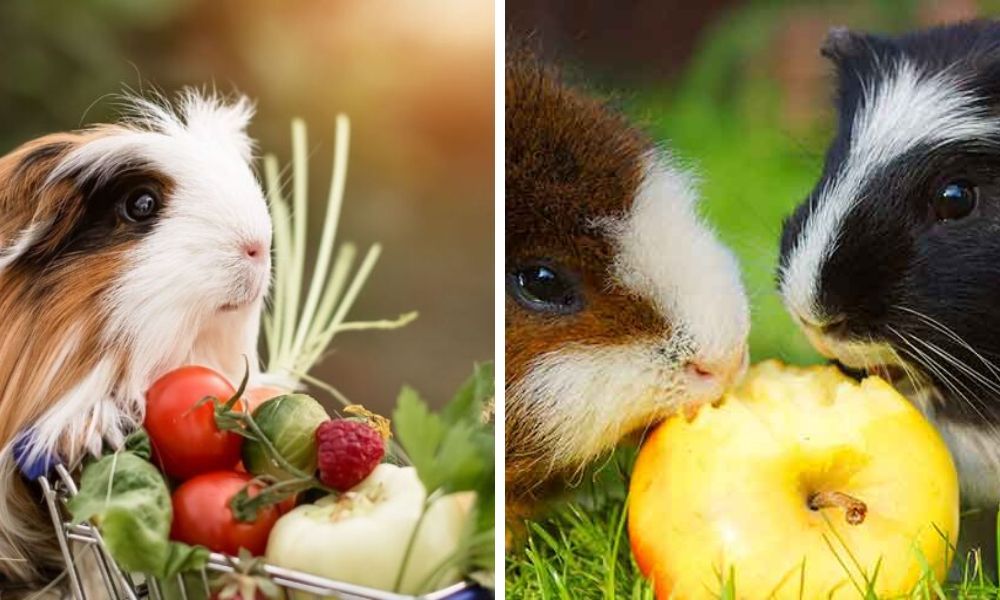
Key Takeaways:
- Guinea pigs thrive on a diet rich in pellet food, fresh hay, and leafy greens.
- Essential vitamins like stabilized vitamin C are crucial for their health.
- Fresh fruits and veggies are delightful treats but should be given in moderation.
Introduction
Guinea pigs are delightful pets that bring joy to many households. Ensuring they have a proper diet is crucial for their health and happiness. This article delves into the specifics of pellet food for guinea pigs, their favorite fruits, and other essential foods that should be part of their diet.
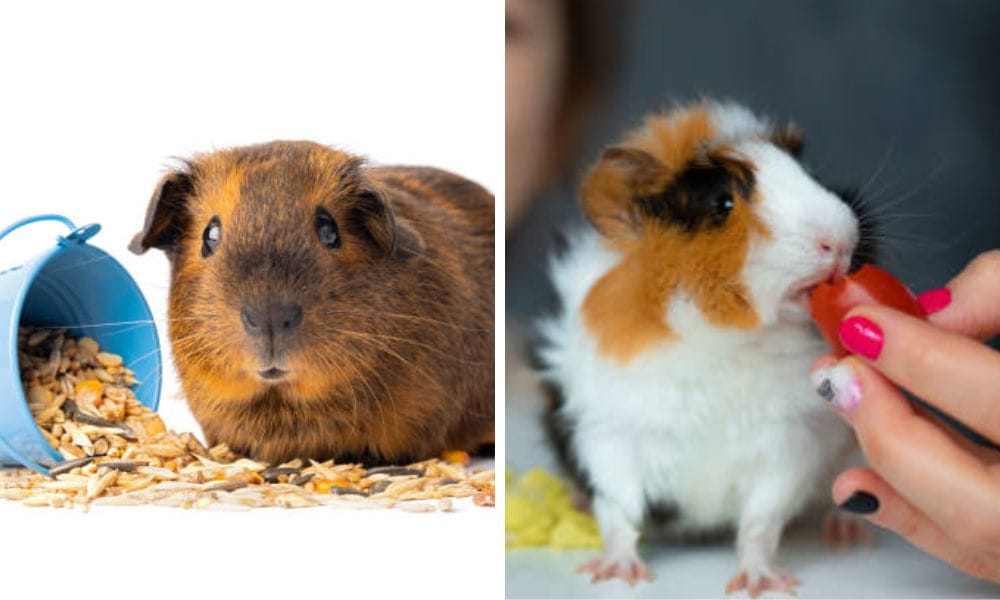
The Importance of Pellet Food for Guinea Pigs
Pellet food for guinea pigs is a cornerstone of their diet. These pellets are specially formulated to provide all the essential vitamins and minerals that guinea pigs need. A good quality pellet will include stabilized vitamin C, which is vital since guinea pigs cannot produce this vitamin on their own.
Pellets also contain other essential nutrients like folic acid, riboflavin supplement, and pyridoxine hydrochloride. These nutrients ensure that guinea pigs maintain a healthy immune system and overall well-being. When choosing pellet food, look for those that are timothy-based, as they are high in fiber and suitable for adult guinea pigs. High-quality adult guinea pig food promotes overall health and well-being by providing a complete diet with essential vitamins and minerals, high fiber content, and no artificial additives.
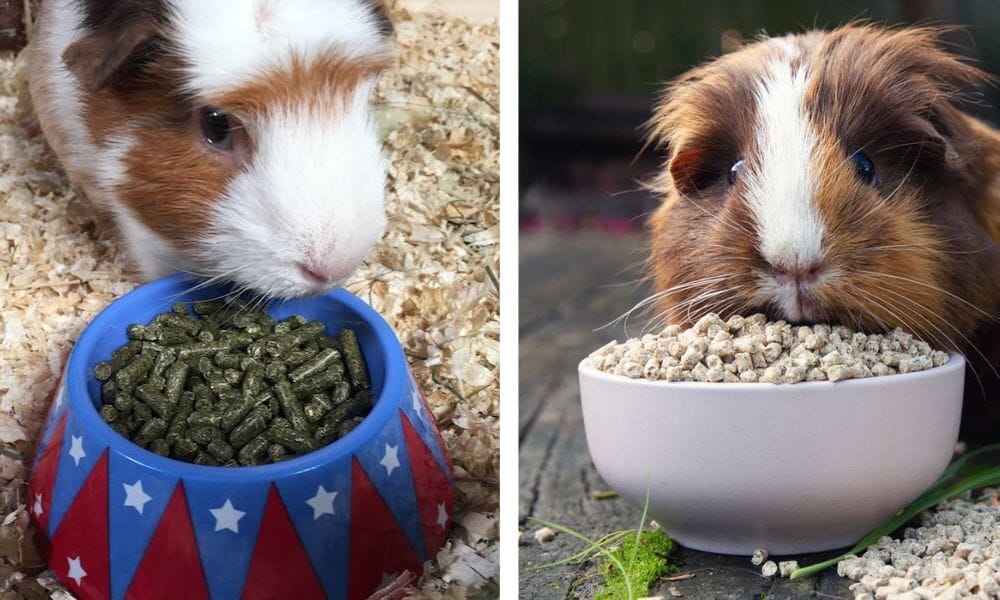
Fresh Hay: The Staple of a Guinea Pig's Diet
Fresh hay, particularly timothy hay, is another critical component of a guinea pig's diet. It provides the necessary fiber that aids in digestion and keeps their teeth healthy. Unlimited grass hay should always be available to your guinea pigs.
Timothy hay is preferred over alfalfa hay for adult guinea pigs due to its lower calcium content. High calcium levels can lead to urinary problems in guinea pigs. Fresh hay should be clean, dry, and free from mold to ensure it provides the best nutritional value.
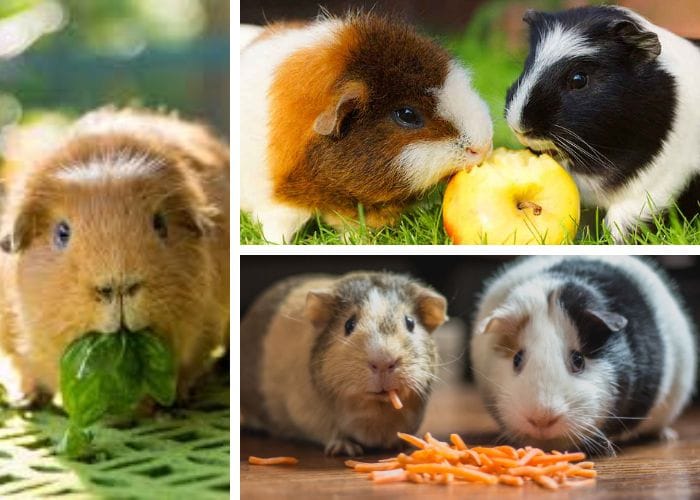
Leafy Greens: A Nutritious Addition
Leafy greens are a fantastic addition to a guinea pig's diet. They are rich in vitamins and minerals, providing a well-balanced diet. Some excellent choices include romaine lettuce, kale, and spinach. These greens should be washed thoroughly to remove any pesticides or chemicals.
While leafy greens are nutritious, they should be given in moderation. Overfeeding greens can lead to digestive issues. A small handful of fresh greens daily is sufficient for most guinea pigs.
Favorite Fruits: A Tasty Treat
Most guinea pigs have a sweet tooth and enjoy fruits as treats. Some of their favorites include apples, strawberries, and blueberries. These fruits are not only delicious but also provide essential vitamins and minerals.
However, fruits should be given sparingly due to their high sugar content. A small slice of apple or a couple of berries a few times a week is enough. Overfeeding fruits can lead to obesity and other health issues.
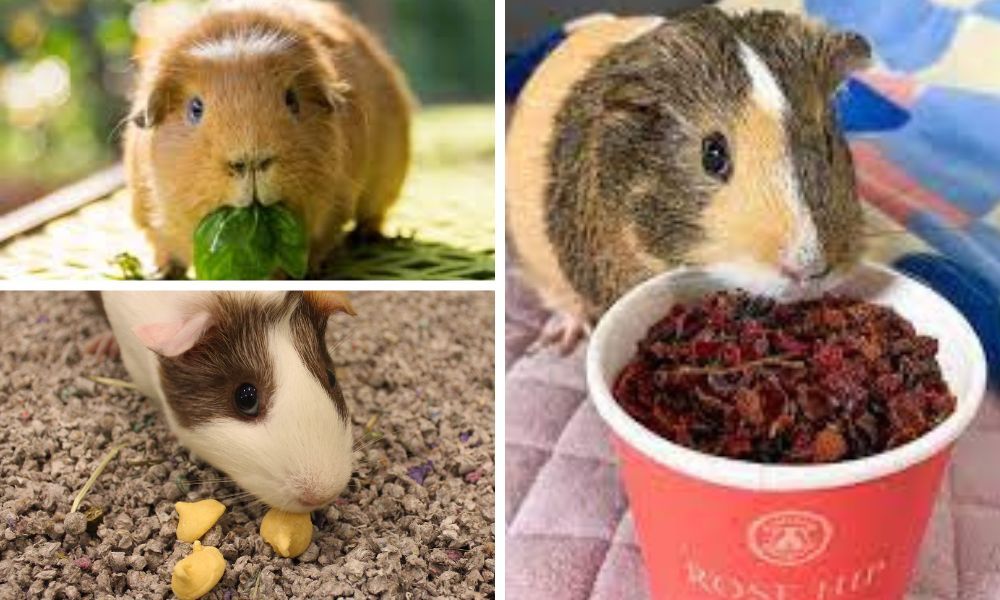
Essential Vitamins and Minerals
Guinea pigs require a range of vitamins and minerals to stay healthy. High-quality guinea pig food, formulated with premium ingredients like Timothy hay, stabilized Vitamin C, and prebiotics, is crucial for their overall health and active lifestyle. Stabilized vitamin C is especially important, as a deficiency can lead to scurvy. Other important nutrients include calcium carbonate, zinc sulfate, and copper sulfate.
Pellet food for guinea pigs is typically fortified with these vitamins and minerals. However, it’s essential to ensure that your guinea pig’s diet is varied and includes fresh hay and leafy greens to provide a well-rounded nutritional profile.
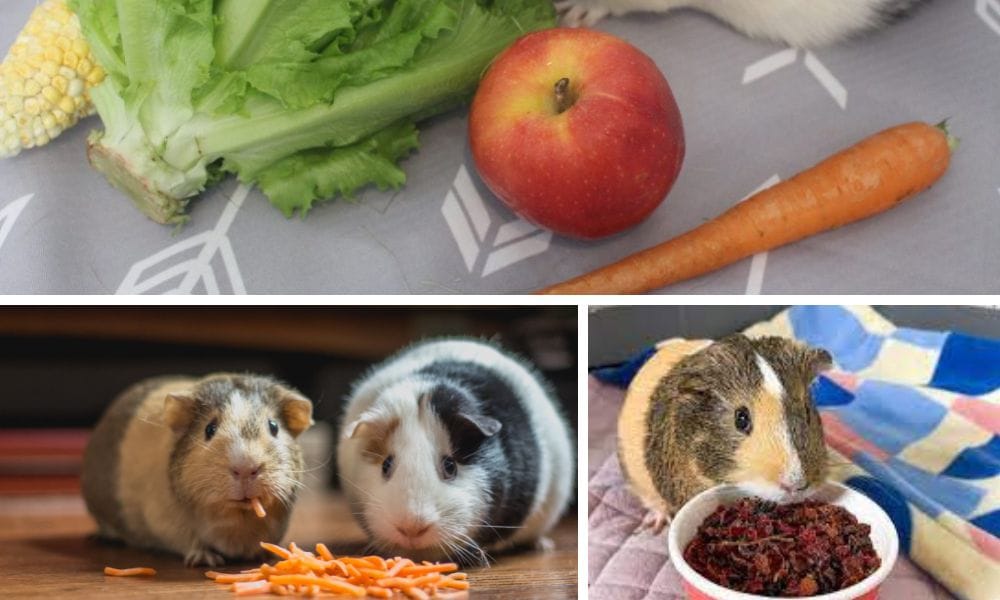
Balanced Diet and Nutrition
Guinea pigs love fresh fruit, especially fruits that are high in vitamin E supplement and vitamin C, such as oranges, kiwis, and melons. They also enjoy apples, strawberries, blueberries, bananas and other sweet treats in moderation. It's important to remember that fruits should be given as occasional treats only; guinea pigs' main source of nutrition comes from hay and pellets specially designed for them. To keep your guinea pig healthy and happy, make sure to give them lots of hay and a balanced diet with some occasional fresh fruit treats.
The Role of Supplements
Guinea pigs requiring a higher level of nutrition. While a well-balanced diet should provide most of the nutrients your guinea pig needs, supplements can be beneficial in certain situations. For example, if your guinea pig is not eating enough fresh hay or greens, a vitamin C supplement may be necessary.
Supplements like choline chloride and thiamine mononitrate can also support your guinea pig's health. Always consult with a veterinarian before adding any supplements to your guinea pig's diet to ensure they are necessary and safe.
The Importance of Fresh Water
Fresh water is essential for guinea pigs. It helps with digestion and keeps them hydrated. Ensure that your guinea pig always has access to clean, fresh water. A water bottle with a sipper tube is a good option as it keeps the water clean and prevents spills.
Regularly check and refill the water bottle to ensure your guinea pig stays hydrated. Clean the bottle and sipper tube weekly to prevent the buildup of bacteria.
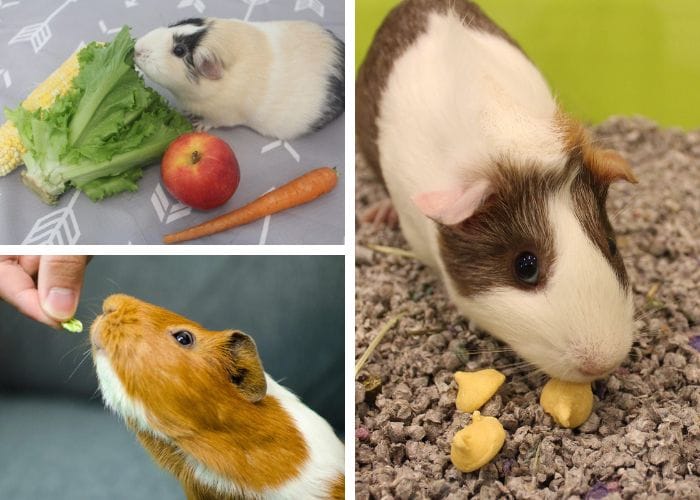
Avoiding Harmful Foods
Not all foods are safe for guinea pigs. Some foods can be harmful or even toxic. Avoid feeding your guinea pig foods like chocolate, onions, and garlic. These can cause severe health issues.
Additionally, avoid giving your guinea pig any processed or sugary foods. Stick to fresh hay, leafy greens, and the occasional fruit treat to keep your guinea pig healthy and happy.
The Role of Fiber in a Guinea Pig's Diet
Fiber is crucial for a guinea pig's digestive health. High fiber pellet food and fresh hay provide the necessary fiber to keep their digestive system functioning correctly. Fiber helps prevent issues like constipation and diarrhea.
Timothy hay and timothy-based pellets are excellent sources of fiber. Ensure that your guinea pig has access to these foods at all times to support their digestive health.
Understanding Guinea Pig Pellets
Guinea pig pellets are specially formulated to meet the nutritional needs of guinea pigs. They contain a mix of essential vitamins, minerals, and fiber. Look for pellets that include stabilized vitamin C, as this is crucial for guinea pig health.
Pellets should be timothy-based for adult guinea pigs. Avoid pellets that contain seeds or nuts, as these can be high in fat and not suitable for guinea pigs.
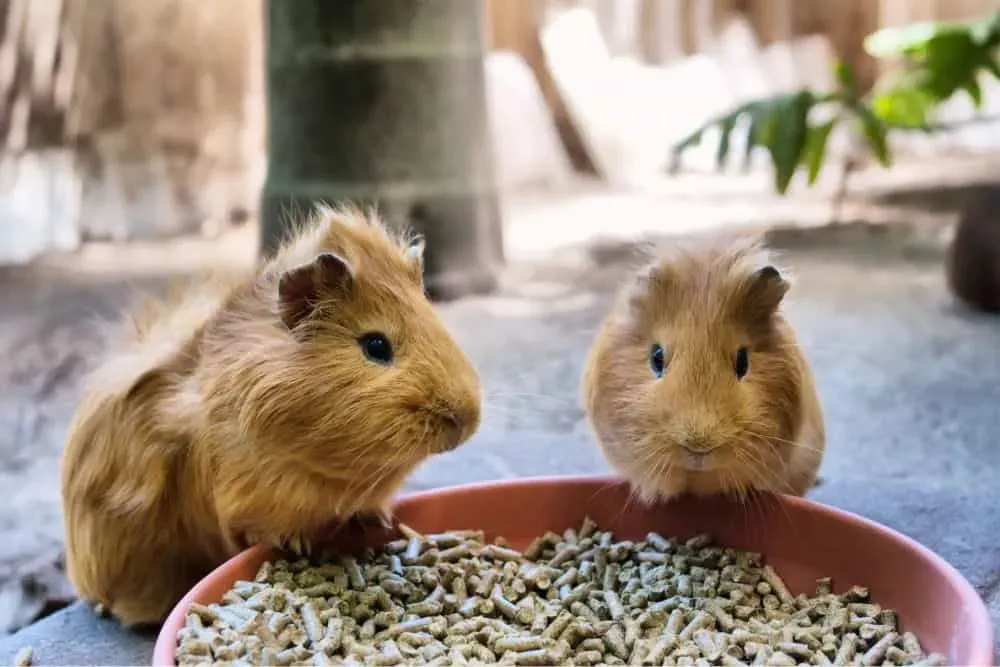
The Benefits of Timothy-Based Pellets
Timothy-based pellets are ideal for adult guinea pigs. They are high in fiber and low in calcium, making them suitable for maintaining a healthy diet. These pellets help support digestive health and prevent urinary issues.
When choosing pellets, check the ingredients list to ensure they are timothy-based. Avoid pellets with added sugars or artificial colors, as these can be harmful to your guinea pig.
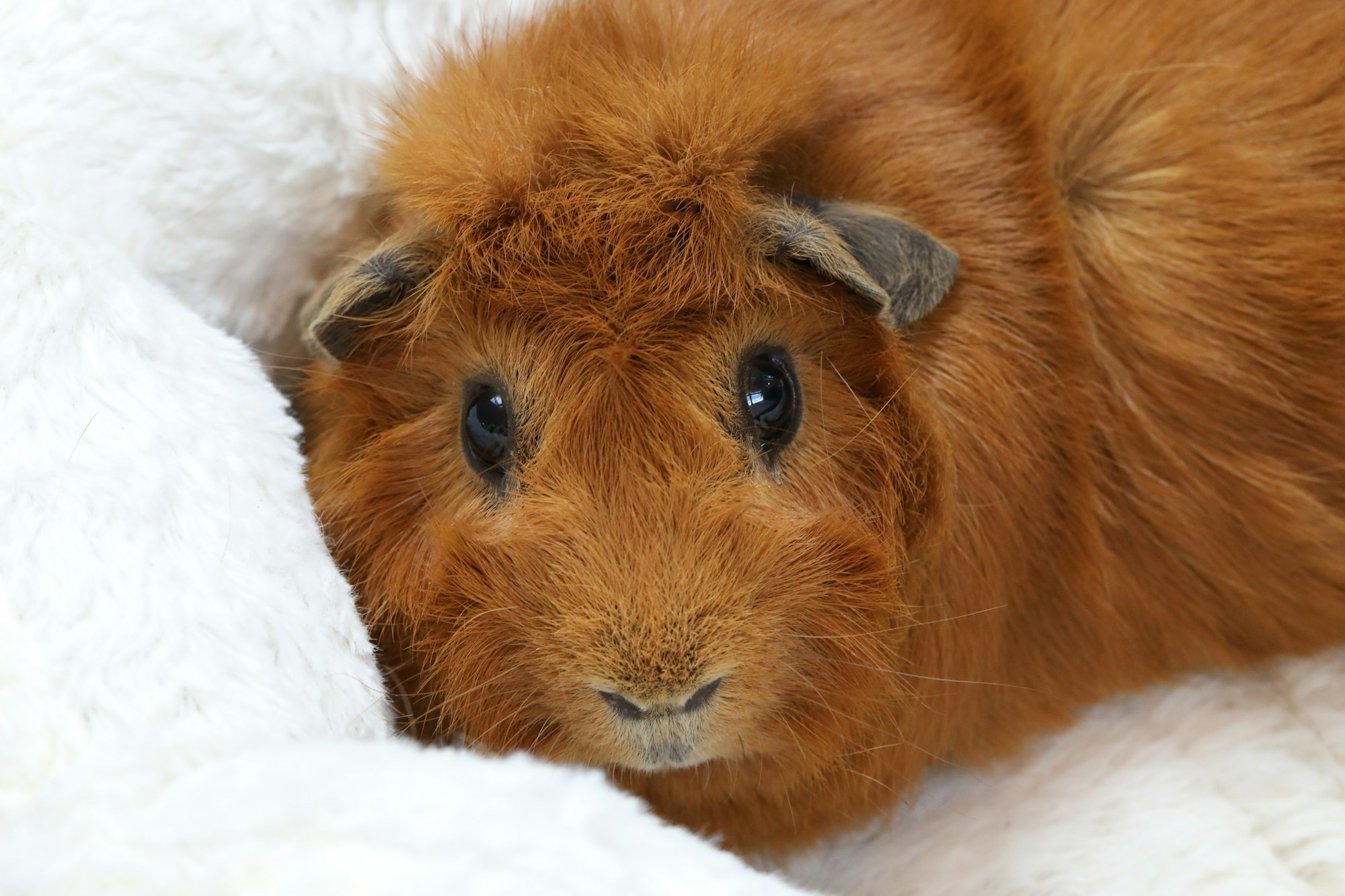
The Role of Fresh Grass Hay
Fresh grass hay is a staple in a guinea pig's diet. It provides essential fiber and helps keep their teeth healthy. Unlimited grass hay should always be available to your guinea pigs.
Timothy hay is the best choice for adult guinea pigs. It is high in fiber and low in calcium, making it suitable for their dietary needs. Ensure the hay is fresh, clean, and free from mold.
The Importance of a Well-Balanced Diet
A well-balanced diet is crucial for a guinea pig's health. This includes a mix of pellet food, fresh hay, leafy greens, and the occasional fruit treat. Providing a variety of foods ensures that your guinea pig gets all the necessary nutrients.
Monitor your guinea pig's diet and adjust as needed to ensure they are eating a balanced and nutritious diet. Consult with a veterinarian if you have any concerns about your guinea pig's diet.
The Role of Vitamins and Minerals
Vitamins and minerals are essential for a guinea pig's health. Stabilized vitamin C is particularly important, as guinea pigs cannot produce this vitamin on their own. Other important nutrients include calcium carbonate, zinc sulfate, and copper sulfate.
Pellet food for guinea pigs is typically fortified with these vitamins and minerals. Ensure your guinea pig's diet includes a variety of foods to provide a well-rounded nutritional profile.
The Benefits of Soybean Meal
Soybean meal is a common ingredient in guinea pig pellets. Soybean oil is also a nutritious ingredient that contributes to a balanced diet for guinea pigs. It is a good source of protein and essential amino acids. Soybean meal helps support muscle growth and overall health.
When choosing pellet food, look for those that include soybean meal as an ingredient. This ensures your guinea pig gets the necessary protein and nutrients for a healthy diet.
The Role of Fresh Water
Fresh water is essential for guinea pigs. It helps with digestion and keeps them hydrated. Ensure that your guinea pig always has access to clean, fresh water. A water bottle with a sipper tube is a good option as it keeps the water clean and prevents spills.
Regularly check and refill the water bottle to ensure your guinea pig stays hydrated. Clean the bottle and sipper tube weekly to prevent the buildup of bacteria.
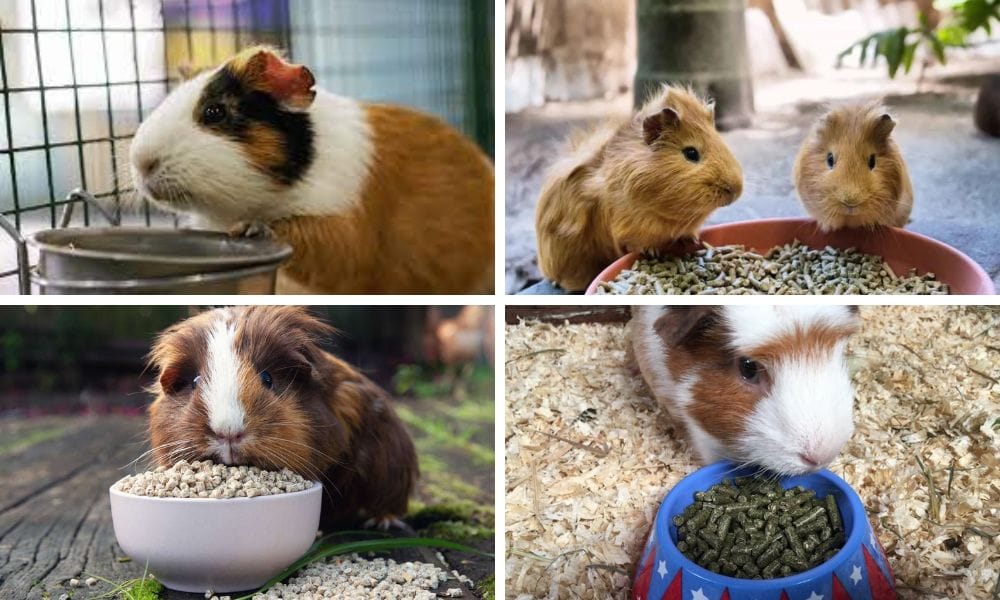
Summary
Providing a proper diet for your guinea pig is essential for their health and happiness. Pellet food, fresh hay, leafy greens, and the occasional fruit treat make up a well-balanced diet. Ensure your guinea pig has access to fresh water at all times and avoid harmful foods. By following these guidelines, you can ensure your guinea pig stays healthy and happy.
FAQ
What is the best pellet food for guinea pigs?
The best pellet food for guinea pigs is timothy-based and fortified with stabilized vitamin C. Look for pellets that do not contain seeds or nuts and are free from added sugars and artificial colors.

How often should I feed my guinea pig fruits?
Fruits should be given sparingly due to their high sugar content. A small slice of apple or a couple of berries a few times a week is sufficient.
Can guinea pigs eat alfalfa hay?
Alfalfa hay is suitable for young guinea pigs but should be avoided for adults due to its high calcium content. Timothy hay is a better choice for adult guinea pigs.
Looking for a healthy treats for your guinea pig? We have done all the research for you and put together our list of best treats for guinea pigs you can buy today! Tap the button below to see the list now!

